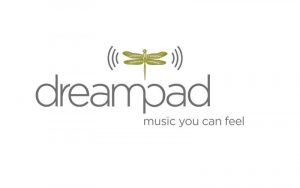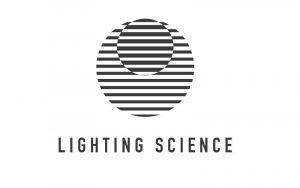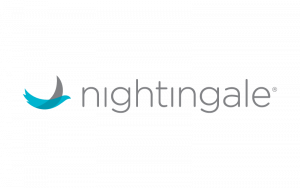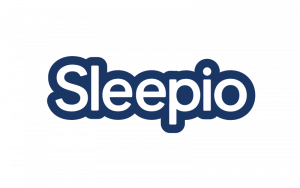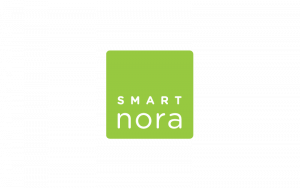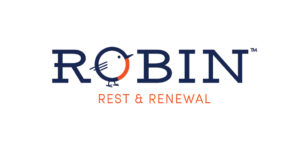
A Good Night’s Sleep Isn’t a Luxury. It’s a Necessity.
Quality sleep is at least as important to health as a healthy diet and regular exercise. In fact, it affects how you look, feel, and perform on a daily basis and can have an immense impact on your long-term health.
While you sleep, your brain and body work together to rest and to recharge your body and mind. Sleep refreshes your brain, boosts your immune system, and repairs damaged cells. It also affects how you think, work, learn, react, interact, perform, and feel throughout the day.
Sleep is linked to health in many important ways. Discover how quality sleep can improve your life:
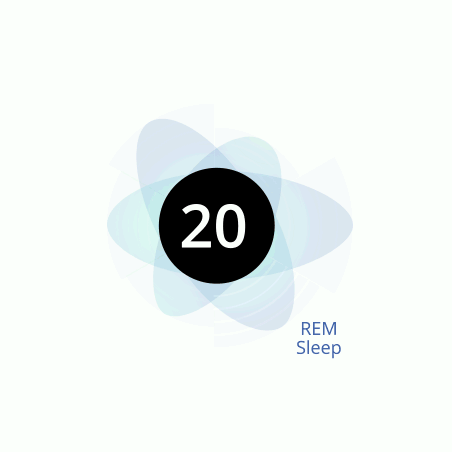
Your SleepScore, Created by Science
Sleep Cycles
Five full sleep cycles per night is considered optimal, each lasting about an hour and a half. Within each cycle you progress from light to deep to REM sleep, sometimes followed by a short wake. While this is the typical progression, these stages aren’t always sequential. It’s quite common to switch from and to light sleep multiple times at night.
With SleepScore, you’ll be able to track your sleep cycles and use fact-based insights and ultra-personalized guidance to improve your sleep.
Considered your baseline, half of the time spent sleeping is in this restful stage. Your brain activity slows and your body relaxes as your heart rate and breathing decrease. It’s ideal to wake up from Light Sleep, and the SleepScore Smart Alarm is designed to help make that happen.
After going through your first light sleep, you enter a slow wave stage. Your brain waves, heart rate, and breathing slow considerably as your blood pressure lowers and muscles relax. Deep sleep is vital for physical and immune system restoration. Subsequently, it’s essential for memory, learning, next-day cognitive performance, and the feeling of being refreshed and recharged the next day. After each cycle, your need for deep sleep diminishes, so time spent in this stage becomes progressively shorter.
After deep sleep, you enter periods of REM sleep that become progressively longer throughout each cycle. This is the mental restoration stage of sleep and where most dreaming occurs. Your brain activity levels increase significantly to help process, store, and link information, which is critical for creativity, memory, and learning. During REM sleep you process the emotional experiences of the day and prepare for upcoming challenges, which greatly impacts your emotional well-being. This stage is more prominent in the later cycles.
While preparing for bed, your body starts in a state of wake as you enter early onset into the light sleep stage. As you continue into your sleep cycle, you enter brief stages of wake at night, between the other sleep stages, which is a normal part of sleep. Whether you realize it or not, while in light sleep, it’s not unusual for your body to become more sensitive to short periods of wake.
Good Sleep Habits
Good sleep hygiene means creating bedtime habits that allow you to maintain a healthy sleep schedule. With some effort and consistency, you can train your body to fall asleep and wake up within the same 20-minute window every day.
Exercising during the day can result in extra sleep at night. However, when you exercise too close to bedtime, your body temperature rises, and you may feel too geared up to fall asleep easily. Give your body a sufficient time window to wind down before bed.
Caffeine, alcohol, nicotine, and food intake within hours of bedtime can stimulate your body and disrupt your sleep.
Stress can make both your body and mind feel more alert. Unwind with activities that help you disconnect and relax.
Your sleeping environment should feel cool and comfortable. The optimal temperature range for sleep is between 60o and 68o but make sure you are comfortable in bed.
Keep your bedroom dark and turn off or dim electronics that emit light.
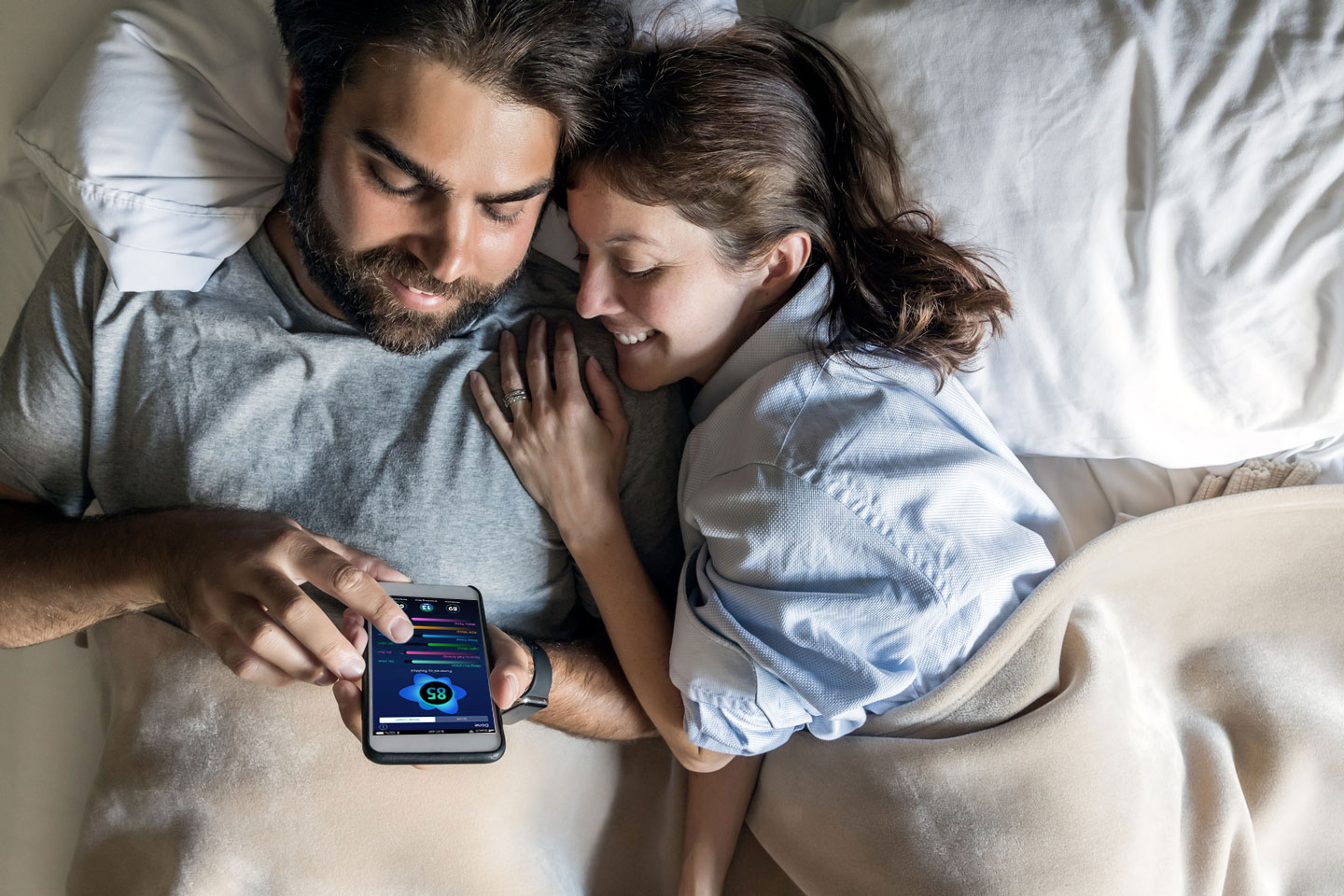
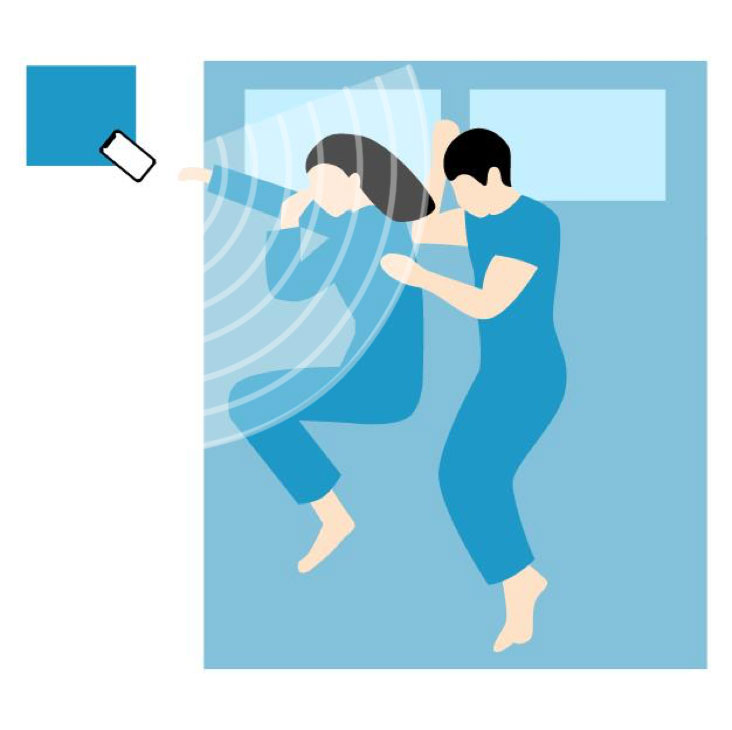
SleepScore by ResMed technology and algorithms are the result of 10+ years of research and development using millions of nights of objective sleep data. The technology has been tested and validated in peer-reviewed scientific publications, against both actigraphy and polysomnography (PSG). The SleepScore team also worked in tandem with the University of Washington to further the technology.
Our team of sleep experts are involved in improving and refining our systems over time, from sleep tracking technology, sleep analytics, and sleep science perspectives. In addition to sleep, SleepScore collects self-report lifestyle data.
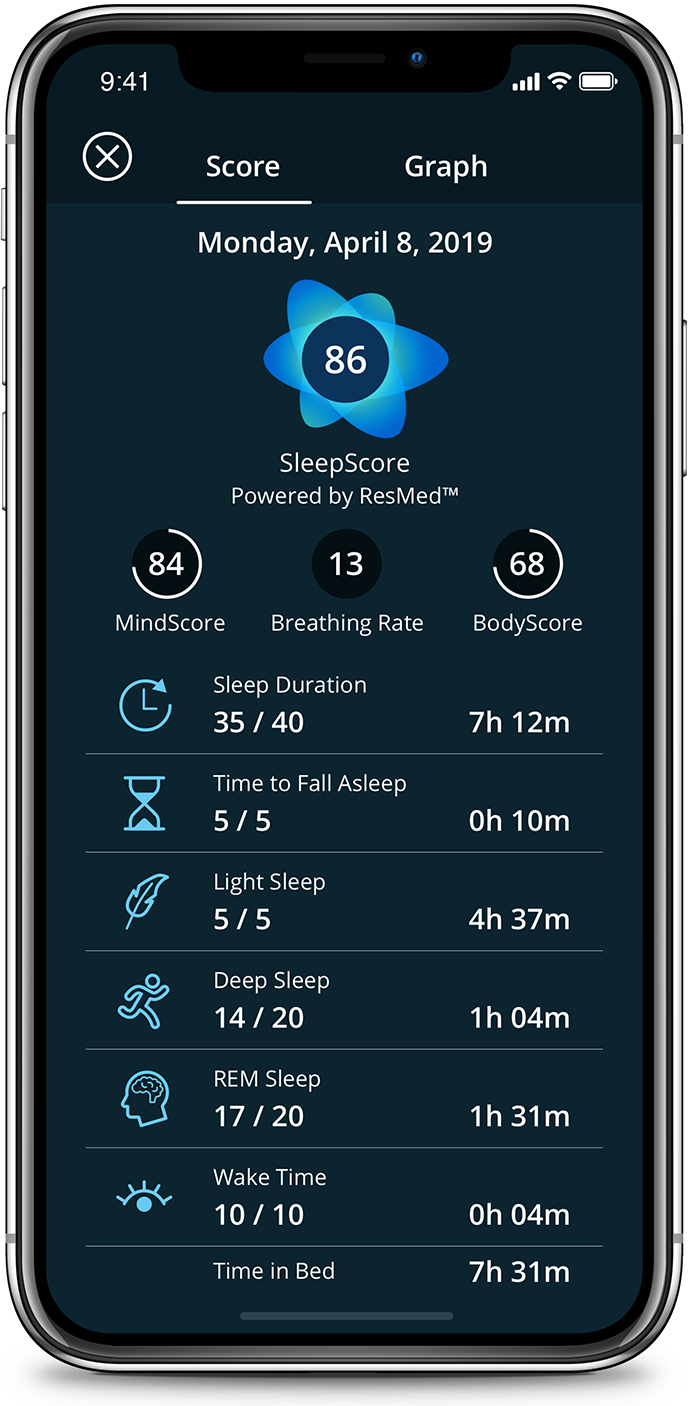
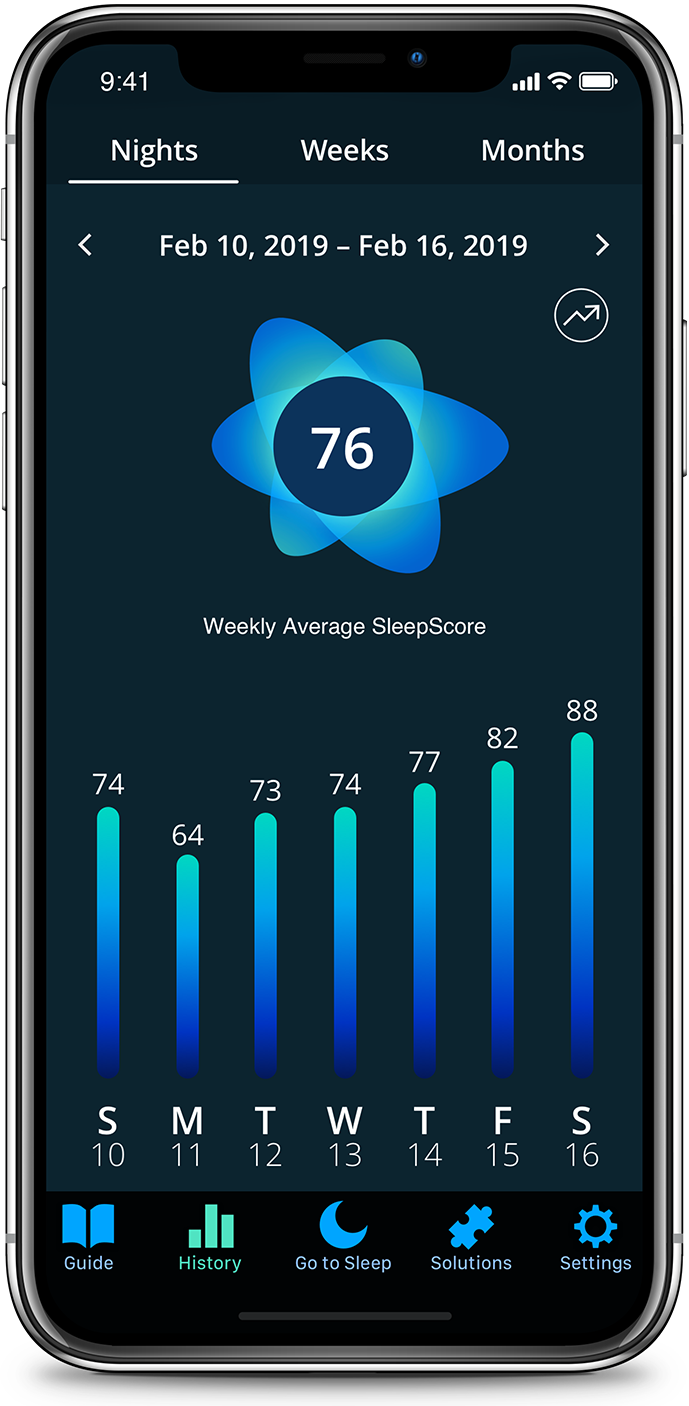
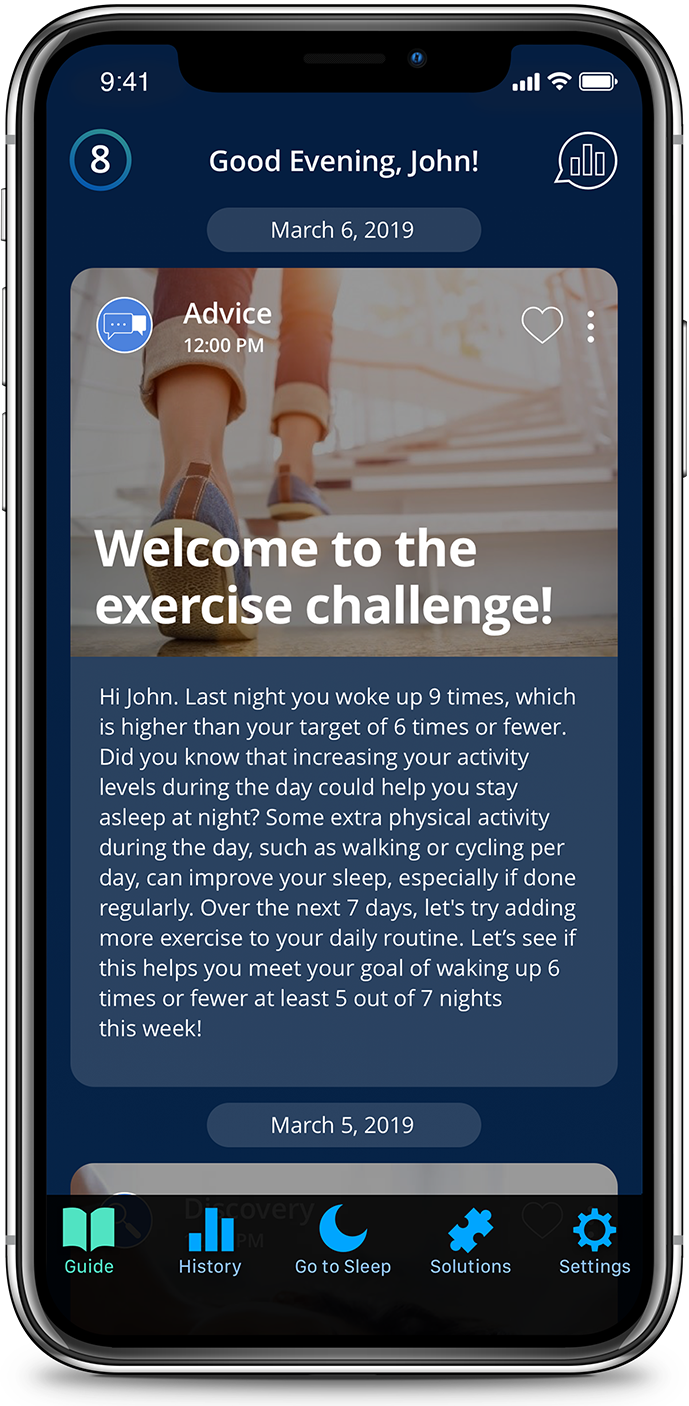
Two Platforms For One Result – Better Sleep
| SleepScore Max | SleepScore App | |
|---|---|---|
| Platform | A device at your bedside, controlled through an app available on most Bluetooth compatible devices. | An app, currently available for most iPhones and Samsung S7 and S8, that uses the phone’s speaker and microphone. |
| Technology | Ultra Wideband, comparable to ultra-low energy radar. |
Sonar, comparable to echo location used by bats and dolphins |
| Additional measures | In addition to sleep, displays light levels and room temperature | In addition to sleep, provides average breathing rate throughout the night |

We have millions of nights of objective sleep data to back up everything we do, and a team of in-house researchers evaluating and validating consumer sleep products. Our Scientific Advisory Board is comprised of researchers and scholars from the most prestigious universities and organizations in the world. Science is at the core of SleepScore Labs.
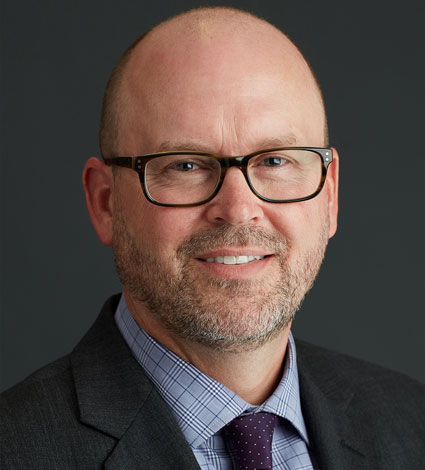
Among the most respected experts in the field of sleep medicine, Dr. Nathaniel Watson, M.D., has extensively researched the genetic aspects of habitual sleep duration, sleepiness and circadian rhythms and the association between obstructive sleep apnea and cancer. Board Certified in sleep medicine and neurology, Dr. Watson serves as Director of the Harborview Medical Center Sleep Clinic and co-director of the University of Washington Medicine Sleep Center and is the former President of the American Academy of Sleep Medicine and American Board of Sleep Medicine.
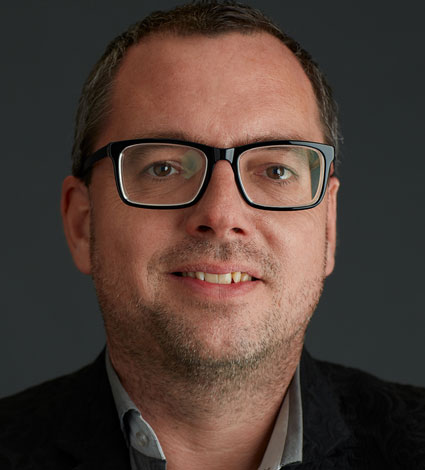
Bridging the gap between the public and private sector, Dr. Roy Raymann, known affectionately as “The Sleep Czar” was responsible for the Apple, Inc.’s efforts in health-related initiatives, including features such as Night Shift, Bedtime and the Sleep part of Apple Health. Dr. Raymann earned his Ph.D. in Life Sciences from Vrije University Amsterdam and spent a decade studying sleep at the Netherlands Institute for Neurosciences. He earned accolades in his home country via his Best Ph.D. Thesis in Sleep Medicine and is considered a leading expert sleep research, ambulatory monitoring / wearables, psychophysiology, (task) performance measures, thermoregulation, circadian physiology and sleep enhancement.
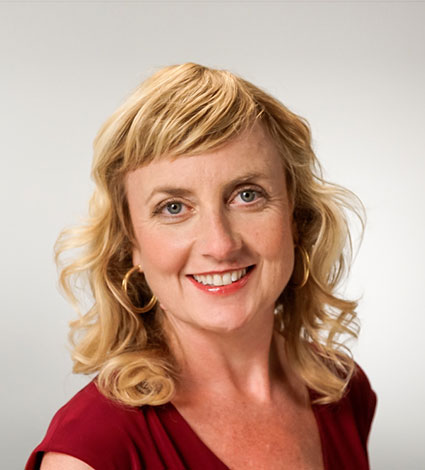

Dr. Sara C. Mednick is an Associate Professor in the Department of Cognitive Sciences at the University of California, Irvine and author of the book, Take a Nap! Change your Life. (Workman). Dr. Mednick’s research investigates how sleep supports cognition and discovers ways of boosting cognition via brain stimulation and pharmacological interventions during sleep. Her work has been continuously federally funded (National Institute of Health, National Science Foundation, Department of Defense Office of Naval Research, DARPA) and she was awarded the prestigious Office Naval Research Young Investigator Award in 2015. Dr. Mednick’s research findings have been published in such leading scientific journals as Nature Neuroscience and The Proceedings from the National Academy of Science, and covered by all major media outlets. Dr. Mednick received a PhD in Psychology from Harvard University, and completed her postdoc at the Salk Institute for Biological Studies at UC San Diego. She resides in San Diego, CA.
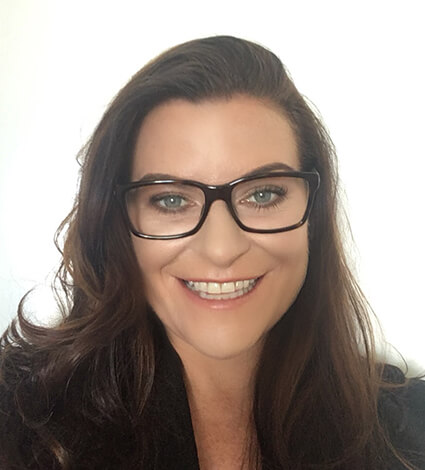

Shona Halson is an Associate Professor in the School of Behavioural and Health Sciences at Australian Catholic University. Prior to this she was a Senior Physiologist at the Australian Institute of Sport for 15 years. She has a PhD in Exercise Physiology and has over 100 peer-reviewed publications in the areas of sleep, recovery, fatigue, and travel. She is an Associate Editor of the International Journal of Sports Physiology and Performance
Shona was selected as the Director of the Australian Olympic Committee Recovery Centre for the 2008 Beijing Olympic Games, the 2012 London Olympic Games and the Rio 2016 Olympic Games. Shona also provides consultancy services to Nike as part of the Nike Performance Council.

There are many products on the market that claim to improve your sleep. However, many of those claims are not backed by science. We test those claims.
![]()
For Consumers -This means that all products we recommend are tested and have been shown to improve sleep in our users. Our mission is to bring people better sleep, and we can only do that by being confident in the validity of the products we support. To learn more about the products we have validated, look at the SleepShop.
![]()
For Manufacturers – We’ll test your product’s effectiveness for improving sleep. Our validation studies are tailored to meet the manufacturer’s need, with fast turn-around at a fraction of the cost of partnering with an academic institution. We evaluate, test, and validate consumer products with manufacturers in mind, providing the level of validation necessary for products on the consumer sleep improvement market. After your product has been validated, we provide our SSL Validated Seal, include your product in our SleepShop, and provide targeted recommendations to customers who could benefit. To learn more about this service, reach out to science@sleepscorelabs.com.
SleepScore Labs provides objective sleep tracking technology to university and clinical collaborators aiming to investigate sleep in a variety of contexts. Collaborations with SleepScore Labs include access to 30-second epoch sleep-stage data, as well as nightly summaries based on objective sleep measures. In addition to the objective sleep data, self-report lifestyle, sleep behavior, health behavior risk, and bed and bedroom environment data for participants are included.
SleepScore Labs also engages in collaborative research activities, including co-authoring academic journal articles and professional conference presentations.
Current partnerships involve research on sleep and athletic performance, second-hand smoke exposure and flight attendant sleep quality, and monitoring and treatment for chronic insomnia.
Principle investigators wishing to collaborate with SleepScore labs may submit a request to science@sleepscorelabs.com.
